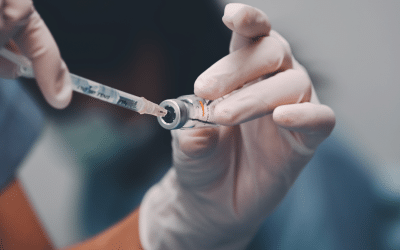Decoder n° 46: Alliance VITA brings to light Surrogacy on an International level
The Event
This coming March 15 in Paris, the Council of Europe will be holding an important meeting on surrogacy.
The Committee on Social Affairs for the Parliamentary Assembly will examine a draft report “Human Rights and Ethical Questions related to surrogacy”, to prepare the Plenary Session vote which could be held between 18 – 22 April in Strasbourg. This event is scheduled while important changes are taking place these past months on an international level.
In Europe, the debate has attempted to differentiate two forms of surrogacy: « commercial surrogacy » is clearly being fought against, but some defend the possibility of accepting so-called “ethical” surrogacy (meaning without apparent monetary compensation)
However the real situation seen in countries practicing either paid or free surrogacy prove that it can never be ethical: in all cases, because of the nature of the act, the body of the woman is exploited as an object and the rights of the child are seriously violated, being considered as merchandise to be sold, purchased or given away. This could be considered as a “new form of slavery in modern times”.
For further information : Surrogacy Issues in France
The Figures
100,000 European citizens, alerted by the recent development in the debates at the council of Europe, have signed the petition No Maternity Traffic requesting a universal ban on Surrogacy (see below for “Best picks”).
Recent position of international organizations
Current debates at the Council of Europe
The Council of Europe consists of 47 member states, the Island of Vladivostok, and 820 million inhabitants. The principal objective of this body, whose headquarters is in Strasbourg, is to defend and promote human rights. Its’ Parliamentary Assembly (PACE) is composed of Parliamentary representatives from each country. For example, the French delegation at PACE includes 24 assembly members (12 full members and 12 substitutes) and 12 Senators (full members and 6 substitutes)
The initial draft resolution in 2014 denounced dangers of Surrogacy
23 members from 11 different countries, which thereby proves its’ representativeness, initiated a draft resolution with PACE dated July 1, 2014, entitled “Human Rights and ethical issues related to surrogacy” (Doc. 13562).
This text clearly denounces the dangers of surrogacy: “Surrogacy undermines the human dignity of the pregnant woman since her body and its reproductive function are used as a commodity (…)The practice of surrogacy also disregards the rights and human dignity of the child because it turns the baby into a product. (…) Surrogacy arrangements turn the baby into a commodity to be bought and sold.
And the members conclude “The Parliamentary Assembly should further examine the issues arising from the practice of surrogacy, especially its links with the sexual and reproductive health of women, human trafficking and the rights of children, and discuss tools for addressing the problem.
The major challenge of this initiative, for the supporters of a total ban on surrogacy, is to achieve an International Convention to be signed by all European countries, in line with other conventions which guarantee the respect of Human Rights in a special area (for example, the 1997 Oviédo convention concerning bioethics, which specifically forbade human cloning).
The rapporteur’s conflict of interest
In autumn 2014, the Parliamentary Assembly decided to put the draft resolution on its’ agenda. The procedure is to name a rapporteur, who studies the issue and suggests to adopt a proposal, first by committee, then in plenary session.
A rapporteur was chosen on January 28, 2015 by the Committee on Social Affairs, Health, and Sustainable Development: Petra de Sutter, a Belgian Senator. She started work on elaborating a preliminary report, which may well be in favour of regulating Surrogacy. But during a Committee’s meeting on November 23, 2015, a major conflict of interest concerning this person was revealed, which resulted in deferring the examination of the text and significant tensions. (See our “Worst pick” below).
2 The European parliament’s recent condemnation
The European Union includes 28 member States and approximately 500 million inhabitants. The Committee on Legal Affairs for the European Parliament had requested fifteen experts to assess this practice. This study, presented on July 8, 2013 to the European members revealed a considerable diversity of scenarios regarding Surrogacy:
- 7 countries forbid the principle, although sometimes recognizing effects on filiation (France, Germany, Italy, Spain, Portugal and Bulgaria).
- 2 countries explicitly authorize and supervise this practice: the United Kingdom (only on a free basis) and Greece.
- Most of the other countries do not have specific legislation in this area, which leaves room for tolerances, more or less admitted, for example as in Belgium or The Netherlands.
On December 17, 2015, the European Parliament voted by strong majority its “Annual Report for 2014 on Human Rights and Democracy in the World”. For the first time, this report included a very firm condemnation of the practice of surrogacy and requested that it be prohibited on a general basis.
Point 114 of the report, in the chapter on women and young girls’ rights, « condemns the practice of surrogacy, which undermines the human dignity of the woman since her body and its’ reproductive functions are used as a commodity; considers that the practice of gestational surrogacy which involves reproductive exploitation and use of the human body for financial or other gain, in particular in the case of vulnerable women in developing countries, shall be prohibited and treated as a matter of urgency in human rights instruments”.
- The last report from the Hague Conference on Private International Law on Filiation/Surrogate Motherhood
The Hague Conference on Private International Law (HCCH) is a worldwide intergovernmental organization including 79 States and the European Union. Its purpose is to achieve the unification of the rules of international private law on an international basis. It has already elaborated around thirty international conventions, for example the May 29, 1993 Convention on Protection of Children and Co-operation in Respect of Intercountry Adoption.
Since 2011, this organization has made efforts to study the consequences of surrogacy on the statute of individuals, particularly questions regarding the filiation of children, when they are the object of a contract between adults from different countries. The idea is to achieve an international treaty to unify the applicable laws in this field.
The last report on Filiation/ Surrogate Motherhood from the group of experts who met in February 2016, states that it is almost impossible to achieve common positions, the issues being so diverse and the positions opposed: “the Group concludes that because of the complexity of the subject and the diversity of the approaches by the States in this respect, the debates were unable to reach a final conclusion concerning the opportunity to elaborate a tool in this field (…) and esteems that work must be continued”.
Recent changes in several foreign countries
Several countries, among those most involved in the surrogacy business, have made important decisions in the last few months to forbid or limit foreigners from having recourse to surrogacy:
Thailand was one of the principal destinations of reproductive tourism, with more than 100 specialized private establishments in this business and costs three times cheaper than in the USA (around $ 50,000, compared to $150,000). After several recent scandals, including that of the little boy, Gammy, with Down’s syndrome, abandoned by the intended Australian couple, the Parliament in Thailand voted a law to forbid foreign couples from having recourse to a surrogate mother, coming into effect on July 30, 2015. In the event of a breach, penalties can include a term of up to 10 years of prison and a fine of 200,000 baths approximately 5,000 €.) The conditions for Thai couples resorting to surrogacy have also become stricter.
India legalized the business of paying surrogate mothers in 2002. It is estimated that more than 3,000 “baby factories” are specialized in this activity, with very low prices due to the country’s extreme poverty. In October, 2015, the Indian government made a declaration affirming that it “does not support the surrogate mother business” and it plans to forbid this for foreigners. A draft law should be introduced soon. At the end of the year 2012, India had already forbidden foreign singles and couples of the same sex to have recourse to surrogate mothers.
Nepal with no specific laws against surrogacy had become the preferred destination following India and Thailand. The horrible earthquake in April 2015 for example revealed a particularly widespread network of child trafficking with Israel. At the end of August, 2015, Nepal’s Supreme Court announced that all surrogacy programs would be temporarily suspended, while awaiting a final decision.
Until recently, Mexico was regarded as an « Eldorado » for surrogacy for foreign intended parent(s) as a couple, or single. The State of Tabasco, the only Mexican state to tolerate this practice, voted at the end of 2015 on the possibility of reserving this practice to Mexican couples where the woman can furnish medical evidence of her physiological incapacity to carry a child.
- In Sweden, a governmental investigation on surrogate motherhood submitted to Parliament at the end of February 2016, should soon be approved. This report concludes with the prohibition of surrogacy, whether it might be “commercial” or “altruistic”. Sweden also plans to take measures to forbid their citizens to appeal to foreign clinics.
- In Belgium, where surrogacy is neither authorized nor forbidden, but tolerated under certain conditions, a report from the Senate (who since 2014 no longer has any legal authority) published in December 2015, studying different possible methods of “joint parenthood”. If all Belgian parties reject the principle of surrogacy in exchange for monetary compensation, there is still an unsettled debate on possible guidelines for this practice.
Best Selection
The International Petition No Maternity Traffic has requested the Council of Europe to commit to abolishing and actively prohibiting all forms of surrogacy practices. The petition will be submitted to the Council of Europe in the next coming days.
The International Union for the Abolition of Surrogacy who launched this initiative is supported and promoted by the Agence Européenne des Adoptés (European Agency for Adoptees) l’Appel des professionnels de l’enfance, (Association of Childhood Professionals) Alliance VITA, Care for Europe, la FAFCE, the European Center for Law & Justice, Fondazione Novae Terrae, La Manif Pour Tous, Human Dignity Watch, U Ime obitelji…
Worst Selection
Petra de Sutter was chosen as rapporteur for the draft resolution on surrogacy, for the Committee on Social Affairs at the Parliamentary Assembly of the Council of Europe (see above). This member is a gynecologist practicing surrogacy as Head of the Reproductive Medical Service at Gand Hospital, Belgium. Yet she did not declare this conflict of interest at the moment of her nomination, as required by PACE regulations. Additionally, the French group CoRP, has revealed that the Indian clinic Seed of Innocence, where surrogacy is practiced for commercial ends, has a “clinical collaboration” with her, although she denies it.
During the tumultuous January 27, 2016 meeting the Committee on Social Affairs refused to examine the grounds of this conflict of interest, by means of a contrivance procedure: it “was decided (by a raise of hands) not to vote on the possibility of relieving the rapporteur of her duties”.
These maneuvers must be denounced, because they prove that political and economical issues start to interfere in a debate which should, on the contrary, deal uniquely with Human Rights.
FOR FURTHER INFORMATION
Get involved to help stop surrogacy in Europe: Film of February 26, 2016 with Caroline Roux



